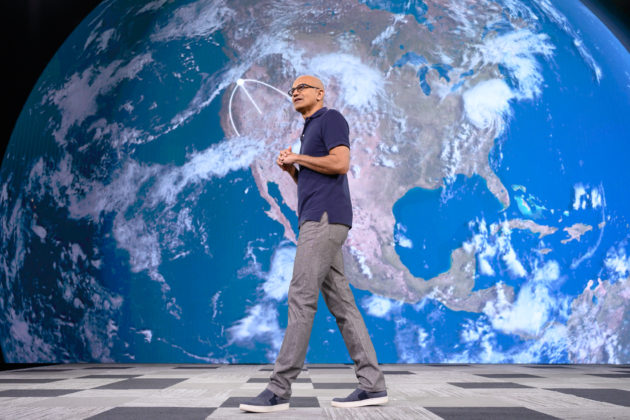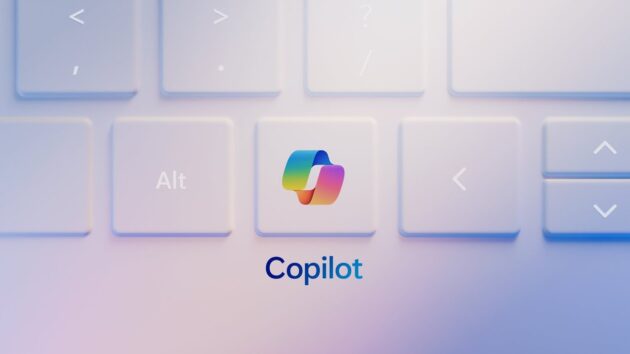
Editor’s note: This is a guest analysis post written by S. “Soma” Somasegar, managing director at Madrona Venture Group and a former Microsoft executive. GeekWire occasionally runs opinion and analysis pieces from members of the community.
Microsoft is a powerhouse in the enterprise and has always recognized that the consumer market is important for the company’s growth, but it has often struggled to win the right level of consumer mindshare.
With the company’s latest bet on world-class talent from Inflection.ai, Microsoft is setting its sights on taking its success with Copilots to the AI native apps that will dominate in the coming years.
Microsoft has pursued innovation and acquisition as routes into the consumer market in the past. Several years ago, we saw Microsoft flirt briefly with acquiring TikTok, the popular social media app that has captured the attention of millions of young users. Microsoft’s recent acquisition of Activision Blizzard complements the company’s already strong position in gaming. While niche to some, gaming is an incredibly valuable and important component of the consumer market.
But young consumer audiences use various social networking tools — Instagram, TikTok, and others —that typically have nothing to do with Microsoft. Microsoft is better known as a tool for getting schoolwork done!
To win, Microsoft wants to be front and center for the next generation of consumers. These young consumers will grow up and be enterprise users — users who want to use cloud, AI, and productivity tools. That’s where bringing on Inflection.ai co-founders Mustafa Suleyman and Karén Simonyan and several others from the team comes in. They have a clearly expressed goal to make a positive impact on every consumer with AI.
The next platform shift

Stepping back, we are in the midst of one of the biggest platform shifts in history.
The last two platform shifts were the cloud and mobile, respectively. Though a little late to the game, Microsoft successfully became a cloud computing leader. However, they did miss the mobile platform wave, which transformed how we communicate, work, shop, travel, and entertain ourselves. It was a costly miss, but Microsoft learned from that experience.
The company has been an early mover and arguably the most successful mover in AI. The partnership with OpenAI, the plethora of Copilots starting with GitHub Copilot, Azure as a key AI platform, and Microsoft’s approach to model-as-a-service all contribute to the thought leadership that Microsoft has clearly demonstrated.
Now, it rightfully wants to build on that and leapfrog the rest of the industry by delivering a personalized AI agent for every consumer. AI has the power to be a personal assistant, a coach, a companion, and what everyone is talking about now — an agent that acts on our behalf.
Even with all the focus on AI and the explosion of models and tools to tune and deploy them, I believe we are still very much in the early days and haven’t seen transformative applications in the AI era.
A good comparison here is that when the iPhone came out, it was a breakthrough device and a platform, but it was not obvious how it would revolutionize our lives. Established sites embraced this quickly. Facebook launched a mobile app and media sites rolled out mobile apps to access their content. These are akin to the copilots that work alongside existing products and are introducing people to what AI can do for them.
In the mobile era, it took apps like Uber and Airbnb, which transformed the transportation and housing industries, to show us the true potential of the new platform. Similarly, we have not yet seen the killer apps of AI, the ones that will make us wonder how we ever lived without them. We have seen glimpses of AI in voice assistants, chatbots, copilots, and recommendation systems, but they are still limited and fragmented. There is an enormous opportunity ahead.
The Inflection.ai team

So why Inflection?
Mustafa Suleyman and Karén Simonyan’s goal is to make a positive impact on every consumer with AI. But getting there is a massive task.
Executing this vision as a standalone startup is incredibly tough. Not impossible, but incredibly tough. And despite the more than $1.5 billion they have raised, their probability of success was unknown.
By some measures, Pi, their consumer-facing service, wasn’t performing at the scale they would need to break out as a startup. What they needed was a company with access to great AI talent, compute, data, customers, and very deep pockets aligned with that vision.
Microsoft is an investor in Inflection. I am sure the public company saw how the founders’ vision aligned with its goals. It seems like a brilliant move by Microsoft to recruit these visionary, technical, world-class leaders to give it a significantly higher probability of success with consumers.
One thing that is exciting to see both from Microsoft and other large technology companies is how they are being super creative to substantially increase the value for their customers. In the past, these companies would ask themselves — do we build, or do we buy? Now, they ask — do we build, do we buy, or do we partner? Microsoft has demonstrated success in all three.
Necessity is also the mother of all invention. The potential constraints by regulatory bodies with regard to an acquisition likely played a role in Microsoft’s creative partnership.
Microsoft’s partnership with OpenAI (with its ups and downs) has been a game-changer. Its acquisitions of LinkedIn and GitHub have been a spectacular success. The diversity of the company’s partnerships with different LLM providers (both proprietary and open-source) have demonstrated their desire to be a platform with the widest possible model-as-a-service capability in Azure.
There is an open question on why large technology companies like Google and Apple, who have more mindshare with consumers, are not yet at the forefront of reimagining what they could do with AI for consumers. I am confident these companies are hard at work. Unfortunately, Google’s execution has not been exemplary thus far. I am hoping that Apple will wow us all sooner rather than later.
Meanwhile, there is a vacuum, and Microsoft is doing everything it can to leapfrog.
I am excited to see some amazing innovation emerge from this new group to deliver more exponential value and unlock ground-breaking experiences for you and me and the more than eight billion consumers around the world.

